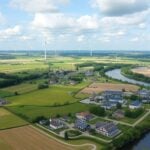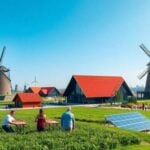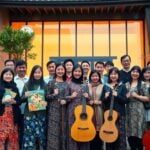Research proposal writing is a critical skill for scholars, scientists, and innovators seeking funding to support their projects. A well-crafted proposal serves as a roadmap, guiding the reader through the intricacies of your research idea while simultaneously persuading them of its value. The process of writing a research proposal can be daunting, but it is also an opportunity to articulate your vision and demonstrate your expertise.
Whether you are applying for a scholarship, fellowship, grant, or investment, understanding the nuances of proposal writing can significantly enhance your chances of success. At its core, a research proposal is not just a document; it is a persuasive narrative that communicates the importance of your work. It should capture the attention of reviewers and stakeholders, compelling them to invest their resources in your project.
This article will provide actionable tips and strategies to help you navigate the various stages of proposal writing, from identifying funding opportunities to crafting a compelling narrative. By following these guidelines, you can increase your chances of securing the necessary support for your research endeavors.
Identifying Funding Opportunities and Requirements
The first step in the research proposal process is identifying suitable funding opportunities. This involves thorough research to find grants, scholarships, fellowships, or investments that align with your project’s goals and objectives. Start by exploring databases and websites dedicated to funding opportunities, such as Grants.gov, the National Science Foundation (NSF), or private foundations relevant to your field.
Networking with colleagues and attending conferences can also provide valuable insights into potential funding sources. Once you have identified potential funding opportunities, it is crucial to carefully review their requirements. Each funding body has specific guidelines regarding eligibility, application procedures, and deadlines.
Pay close attention to the criteria for selection, as this will inform how you tailor your proposal. For instance, some funders may prioritize innovative approaches or community impact, while others may focus on scientific rigor or feasibility. Understanding these nuances will allow you to align your proposal with the funder’s priorities, increasing your chances of success.
Crafting a Compelling Research Question and Objectives
A strong research question is the cornerstone of any successful proposal. It should be clear, focused, and significant enough to warrant investigation. When crafting your research question, consider what gaps exist in current knowledge and how your work will address these gaps.
A well-defined question not only guides your research but also demonstrates to reviewers that you have a clear vision for your project. In addition to a compelling research question, it is essential to outline specific objectives that will guide your investigation. These objectives should be measurable and achievable within the proposed timeline and budget.
For example, if your research question focuses on the impact of a new educational intervention on student performance, your objectives might include assessing baseline performance metrics, implementing the intervention, and evaluating its effectiveness through follow-up assessments. Clearly articulated objectives will help reviewers understand the scope of your project and its potential contributions to the field.
Developing a Clear and Feasible Methodology
Once you have established your research question and objectives, the next step is to develop a clear and feasible methodology. This section of your proposal should outline how you plan to conduct your research, including the design, data collection methods, and analysis techniques. A well-structured methodology not only demonstrates your understanding of research principles but also reassures reviewers that you have a practical plan for executing your project.
When detailing your methodology, be specific about the tools and techniques you will use. For instance, if you are conducting a survey, describe the target population, sampling methods, and survey instruments you will employ. If your research involves experiments, outline the procedures you will follow and any controls you will implement.
Additionally, consider potential challenges or limitations in your methodology and how you plan to address them. By presenting a thorough and realistic approach to your research, you will instill confidence in reviewers regarding the feasibility of your project.
Demonstrating the Significance and Impact of the Research
A critical component of any research proposal is demonstrating its significance and potential impact. Reviewers want to understand why your research matters and how it will contribute to existing knowledge or address pressing societal issues. To effectively convey this significance, articulate the broader implications of your work and how it aligns with current trends or challenges in your field.
Use real-world examples or case studies to illustrate the potential impact of your research. For instance, if you are proposing a study on renewable energy technologies, discuss how advancements in this area could lead to reduced carbon emissions and contribute to global sustainability efforts. Highlighting the relevance of your work not only strengthens your proposal but also resonates with funders who are often motivated by the desire to support projects that have tangible benefits for society.
Budgeting and Justifying Expenses
A well-prepared budget is an essential element of any research proposal. It provides a detailed account of the financial resources required to carry out your project and demonstrates that you have thoughtfully considered all aspects of funding. When developing your budget, be sure to include all necessary expenses such as personnel costs, equipment purchases, travel expenses, and materials.
Justifying each expense is equally important; reviewers need to understand why each item is essential for the success of your project. For example, if you are requesting funds for specialized software or equipment, explain how it will enhance data collection or analysis. Additionally, consider including a brief narrative that outlines how you arrived at your budget estimates and any cost-saving measures you plan to implement.
A transparent and well-justified budget can significantly enhance the credibility of your proposal.
Writing a Convincing Narrative and Executive Summary
The narrative of your research proposal should weave together all elements discussed previously into a cohesive story that captivates reviewers. Start with an engaging introduction that outlines the context of your research question and its significance. Each section should flow logically into the next, maintaining clarity while building a compelling case for why your project deserves funding.
The executive summary is particularly crucial as it provides a snapshot of your entire proposal. It should succinctly summarize the key components: the research question, objectives, methodology, significance, and budget. Aim for clarity and brevity; this section should entice reviewers to read further into your proposal while providing them with enough information to understand its essence at a glance.
Reviewing and Editing for Clarity and Coherence
The final step in crafting a successful research proposal is thorough reviewing and editing. This process is vital for ensuring clarity and coherence throughout your document. Take time away from your proposal before revisiting it with fresh eyes; this can help you identify areas that may need improvement or clarification.
Consider seeking feedback from colleagues or mentors who can provide constructive criticism on both content and presentation. They may offer insights into areas that require further elaboration or suggest ways to enhance clarity. Additionally, pay attention to formatting guidelines provided by funding agencies; adherence to these standards reflects professionalism and attention to detail.
In conclusion, writing a successful research proposal requires careful planning, clear communication, and an understanding of what funders seek in their applications. By following these actionable tips—from identifying funding opportunities to crafting a compelling narrative—you can enhance your chances of securing support for your research endeavors. Remember that each proposal is an opportunity not only to seek funding but also to share your passion for discovery with others who may share in that vision.


























